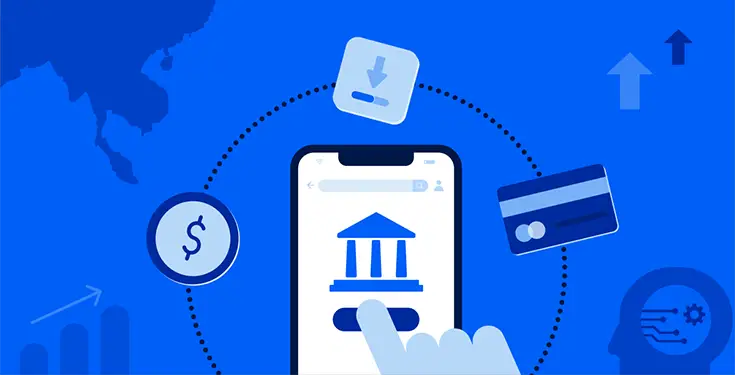Table of Contents
In 2019, a coronavirus pandemic hit the world. According to experts, at that time, only about 20% of banking institutions managed to quickly switch to cloud technologies. The rest of the banks remained in the Stone Age.
Even after Covid-19 went down, many top bank CEOs still have doubts about whether they should switch to the cloud. At the same time, many progressive banking executives in the U.S., Japan, and European countries are actively developing cloud banking and believe it is the future of the global financial sector.
In this post, we are going to look at how cloud banking can change the game for finance and list its key benefits.
What is cloud banking?
In simple terms, cloud banking is the process of using cloud technologies for delivering a wide range of financial services to customers and conducting transactions between various types of financial institutions. It involves the integration of traditional banking functions with cloud-based infrastructure. Therefore, banks can provide their services more efficiently.
Owing to the newest cloud technologies, banks can store and process vast amounts of data securely and benefit from enhanced flexibility, scalability, and cost savings. Moreover, cloud services allow banks to optimize resource allocation, streamline their operations, and speed up innovations. It enables customers to access their accounts and conduct transactions conveniently from anywhere using both mobile devices and PCs.
Cloud banking offers plenty of services, such as mobile banking, online banking, digital payments, and customer relationship management. Additionally, it facilitates the development of new financial products and services, such as robo-advisory, personalized recommendations, and online fraud prevention. Alongside this, cloud banking introduces new challenges, such as regulatory compliance, data privacy concerns, and the need for strong cybersecurity measures.
The list of the top 10 banks that actively use cloud
In 2023, the following largest financial institutions in the world have already implemented cloud banking to varying degrees:
- JPMorgan Chase & Co
- Bank of America Corp
- Industrial and Commercial Bank of China
- China Construction Bank Corp
- HSBC Holdings plc
- Wells Fargo & Company
- Citigroup Inc
- Agricultural Bank of China Ltd
- Bank of China Ltd
- Mitsubishi UFJ Financial Group Inc
These banks have recognized the potential benefits of cloud technology on time and have been actively adopting cloud solutions in their daily operations. The convergence of cloud technology and the banking sector in 2023 promises to reshape the industry, promoting innovation, operational efficiency, customer-centricity, and security.
How cloud technology can revolutionize banking in 2023
The newest cloud technology has a huge potential to revolutionize the financial sector in 2023 by bringing forth significant advancements in scalability, agility, cost-effectiveness, and innovation. Please, find below how the cloud can change the game for finance and banking:
- Boosted innovation. Cloud technology provides a platform for rapid experimentation and innovation. Banks can easily integrate with FinTech startups, leverage open APIs, and develop new financial products and services much quicker.
- Superior analytics. The cloud allows banks to use big data analytics for fraud detection, risk management, and personalized offerings. Using cloud-based analytics, banks can make data-driven decisions and deliver the best solutions to customers.
- Enhanced cost efficiency. The newest cloud technology eliminates the need for extensive on-premises hardware and infrastructure. Hence, banks can pay only for the resources they use, which leads to cost savings and operational efficiencies.
- Boosted flexibility. The cloud enables banks to scale their operations up or down quickly and adapt to customer demands and market dynamics. Moreover, banks can use cloud resources to handle peak workloads and launch new services quickly.
- Strong security. Cloud service providers invest heavily in the strongest security measures. Banks have access to encryption, advanced security features, and regular updates. Additionally, cloud technology helps banks to meet regulatory compliance requirements by providing secure data storage and facilitating audit trails.
Final words
Now, you see that cloud banking has plenty of crucial advantages for both customers and owners of financial institutions. The newest cloud banking technologies will undoubtedly change the world's financial sector. They empower both small and big banks to modernize their operations, stay competitive in a quickly evolving market, and provide customers with secure, convenient, and innovative banking services.



